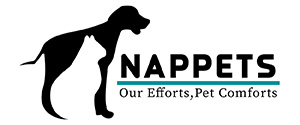How Long Should You Wait to Play with Your Puppy after Eating
If you’ve just become a dog parent, the one thing you’ll have to unfortunately get used to, is unsolicited – and often conflicting – advice from various well-wishing quarters. While most of such advice when seriously heeded may be completely harmless, advice related to your pup’s food and exercise habits must not be randomly followed without the recommendation of a veterinarian (vet). One pet dog-related matter that remains shrouded in confusion, causing many to dispense incorrect information, is how long to wait to exercise or walk your puppy after eating. Given at length below is all you need to know about this issue, as well as other useful guidelines about feeding and exercising your puppy.
How Long to Wait
It is not unusual for your frisky little one to want to jump and play around after wolfing down a large meal. But just as humans are advised to avoid rigorous exercise immediately after a meal, vets recommend waiting at least 2 hours before your baby dog is taken for a walk or exercised after food. Puppies are typically super-energetic and will always want to play, but caution must be exercised lest they should fall prey to injury or illness. Physical activity for pups includes fetching, running, and chasing birds or any other creatures.
Dangers of Not Waiting
Dogs, particularly large-breed dogs, who exercise immediately after eating can develop GDV (gastric dilation-volvulus) – which causes the stomach to swell like a balloon. This is a potentially lethal condition in which the stomach can twist, preventing gas from exiting the stomach and leading to bloat. Since the twisted stomach inhibits the flow of blood to other organs, the blood goes back to the heart, causing arrhythmias or full body shock. The swollen stomach makes it difficult for a young dog to breath. If not given timely treatment, bloat can be serious, and even fatal in some cases.
Exercise Before a Meal
Though walking or exercising your puppy before a meal will drastically reduce the chances of developing a stomach bloat, the timing is all important. Most vets recommend a wait of at least half an hour to feed your pup post exercise. In fact, exercising before a meal can help burn extra calories and help build your puppy’s appetite.
Despite the dangers of your puppy developing a fatal condition just for a bit of harmless exercise right after a meal, GDV is not very common and therefore there is no need to panic. But just to be on the safe side, a two-hour pause following a heavy meal is highly advisable before you decide to exercise your fur ball.
What Else You Should Know
It isn’t uncommon for first-time puppy parents to be overwhelmed by information surrounding issues such as feeding and exercising. Much of this, being based on individual experiences, may be breed, size, and age-specific. Here are four general food and exercise-specific guidelines you may safely follow, no matter what breed your puppy is:
Food:
- Do not free-feed your puppy: Though that cute little adorable face makes you want to indulge her, free-feeding your puppy – even the best dog food – can actually be harmful. Puppies lack self-control and always keeping the bowl full can lead to her over-eating and developing an upset tummy. In the long run, it could put her at risk of becoming overweight and curtail your ability to monitor her eating habits.
- Do not give your puppy human foods: You may love your puppy exactly as you would a new human member of the family, but do not feed her like one. Strictly avoid giving her stuff such as chocolate, ham & processed meats, sugary desserts, candy, spicy sauces, and alcohol.
Exercise:
- Do not exercise your puppy in the hot sun: Exercising in intense heat can be bad enough for adult dogs, let alone fragile puppies who could easily get heatstroke. Exercise her or take her out for a walk when the weather is cooler i.e. early mornings or late evenings.
- Don’t walk your puppy without a leash: No matter how obedient your puppy is, walking your young buddy without a leash is not a good idea. Road risks for puppies include not just cars, motorcycles, and people, but also things like a darting cat or squirrel.
Just as moderation in food and exercise is key to good health for us human beings, so it is for dogs. Besides, the seeds of a long, healthy life filled with good habits are best sowed in puppyhood. So do make sure your little one gets no more than three nutrition-packed meals and timely and moderate exercise. Good luck with watching your puppy grow into a healthy, handsome adult!


Leave a Reply